
views
Is jealousy a sign of love in a relationship?

Yes, it’s normal to feel jealous from time to time. No matter who you are, you’re probably going to experience jealousy at some point within your relationship. You might notice that someone is being flirty with your partner, or that your partner is giving flirtatious vibes to someone else. The reason why you feel jealous is because you don’t want your partner to be with anyone else—you want them to be with you!
Is jealousy a sign of lack of trust?

Yes, it can be. When we feel jealous of what our partner is doing, it might be because we don’t trust them to be around other people without pursuing them romantically. This could be because your partner has acted shady in the past, or it might just be because you’ve had your heart broken before. While jealousy doesn’t always indicate that you don’t trust your partner, it definitely can.
Why do we feel jealous in romantic relationships?

You might feel jealous when you notice someone else is attracted to your partner. Picture this: you’re at a party, and when you come back from the bathroom, your significant other is deep in conversation with someone else, and it looks a little flirtatious. It’s totally normal to get a rush of jealousy in the moment—you might head over and insert yourself in the conversation, or you might ask your partner about them later. Jealousy in small doses is totally fine in romantic relationships, as long as it doesn’t become obsessive or controlling. Small doses of jealousy can help you appreciate your partner. When you see that other people are attracted to them, it can remind you of what you have and why you love them so much.
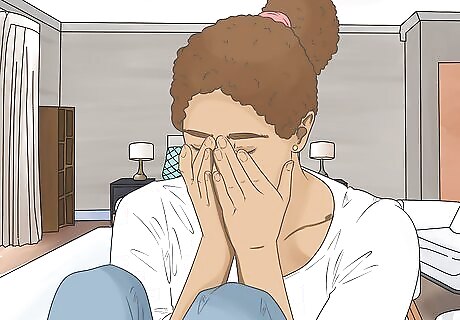
Sometimes jealousy is borne from low self-esteem. If you feel like you aren’t good enough for your partner, you might be constantly worried about them going out to find someone else. This can cause jealousy issues, since it can make you feel insecure whenever your partner interacts with someone else. These issues don’t make you (or your partner) a bad person, they just mean that there are some issues to work through to make your relationship really healthy. You can work on raising your self-esteem by talking to a mental health professional. They can give you specific exercises to help you treat yourself with kindness and raise your confidence.

Other times, jealousy happens because of unrealistic expectations. If you want to spend 100% of your time together but your partner needs a bit of space (or vice versa), jealousy is probably going to crop up. You can address these issues by sitting down with your partner and talking about what you both want out of the relationship. That way, you can come up with a compromise that suits both of you, and your jealousy could disappear. For instance, maybe you dedicate 2 or 3 nights a week to hang out just the two of you, then 1 or 2 nights a week where you go hang out with your own friends separately. That way, you each get some time apart while also spending quality time with each other.
Is there a positive to jealousy?

Yes, jealousy can be used to set boundaries in your relationship. Sometimes, feeling jealousy is a completely normal (and reasonable) reaction to something that your partner is doing. If you feel like a boundary is being crossed, sit down with your partner and talk it out. You can describe why you’ve been feeling jealous and what your partner can do to help mitigate those feelings. For instance, maybe you feel jealous or anxious when your partner goes out without telling you where they’ll be going. You could say something like, “I get a little worried when you stay out all night without talking to me. I need you to text me and keep me updated a few times throughout the night.”
How do you know you are being too jealous?
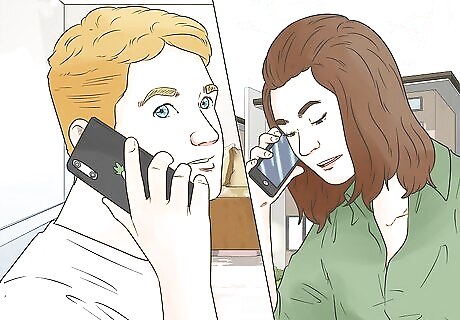
You check up on your partner’s whereabouts often. While it’s normal to worry about your partner or ask them where they’re headed, jealousy can make you overdo it. You might call or text them constantly when they’re out, just to see where they are. Some jealous partners even have location tracking apps so they can check up on their partner whenever they’re out.

You monitor your partner’s texts, calls, or emails. Jealousy sometimes makes us think that our partners are chatting with other people in a romantic way. If you constantly demand to see your partner’s phone or your computer, that’s a sign of jealousy, and it can turn toxic pretty quickly. Everyone is allowed the right to privacy, even in a romantic relationship.

You don’t allow your partner to see their friends. If you’re jealous of your partner's platonic relationships, you might start subtly trying to distance them from their friends. It’s totally fine to want to spend time with your partner, but it becomes an issue if you don’t ever want them to hang out with other people.
Is jealousy a red flag?

Yes, jealousy can be a sign that your partner is controlling. Sometimes, people are jealous because they want to have total and absolute control over the person they’re in a relationship with. If your partner starts ramping up their jealous behavior or tries to control who you spend your time with, it might be a good idea to end the relationship. Jealousy doesn’t always indicate an abusive relationship, but it definitely can. If your partner constantly accuses you of cheating, starts calling or texting you at random times to “catch” you doing something, or forbids you from seeing friends and family, it’s a sign that your relationship is turning toxic.
How can jealousy ruin a relationship?

Jealousy can degrade trust over time. If your partner is the jealous one, it can feel bad to constantly be questioned about where you are or who you’re with. Being bombarded with accusations can make you feel like your partner doesn’t trust you, which can lead to resentment. Healthy relationships are built on a foundation of trust, and jealousy indicates that the trust is lacking.
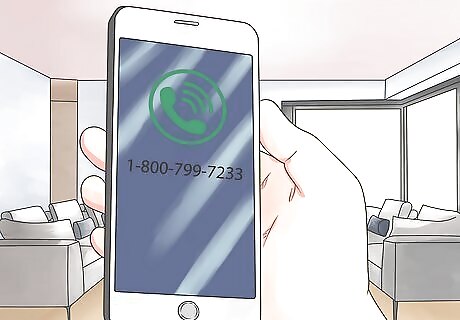
Jealousy can lead to abusive or controlling behavior. While jealousy doesn’t always lead to abuse, it’s one of the red flags to look out for when you’re with a new partner. As someone’s jealousy builds over time, it can lead to them trying to control who you talk to or where you go. If you feel like your relationship is abusive, you can contact a domestic abuse hotline for help. In the U.S., call 1-800-799-7233 to reach a domestic abuse counselor.












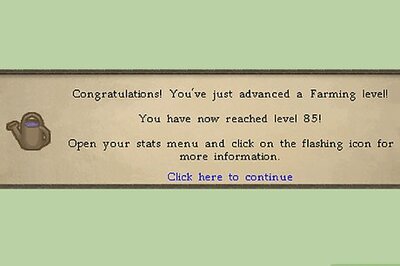
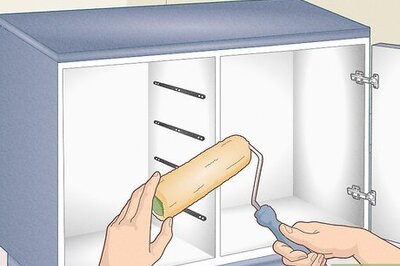






Comments
0 comment